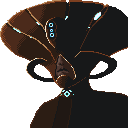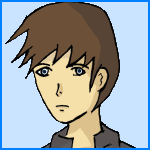QUESTIONS YOU SHOULD ASK YOURSELF! RPG MECHANICS I - V
A collection of the forum thread series. These questions can be handy checklist for maintaining game consistency. Be warned, there's very little organization, and a good deal of overlapping!
 LouisCyphre
LouisCyphre- 06/29/2009 12:19 AM
- 4620 views
RPG Mechanics I : HP to Damage Ratios, Other HP Related Discussion
Ideal Questions
What is the ideal damage to HP ratio in an RPG? Should it damage received increase faster than HP over time? Should it increase slower than? Should the remain proportional? Inversely proportional?
For that matter, what should the difference between starting HP and ending HP be? Ten times? One hundred times? Three times? Should it reach four digits at all? Five digits?
What can HP represent, other than physical health? Evasion? Shields? Sanity? Bankroll? Is it necessary to break away from physical health?
Lastly, what should the difference between various character's HP? Should one character's HP ever be triple that of another character's at equal level? Should it even reach twice that? 150%?
RPG Mechanics II : Unique Action Command Theory
Ideal Questions
Should your characters have unique commands, beyond the basics allowed to all characters? If so, how should they be balanced? Should they inflict damage, status effects, or have some other type of effect, like scanning opponents?
If you can choose who goes in your party, how do you make sure all unique commands are useful? Do you worry about it? Do you balance unique commands even if the party is pre-determined?
Do guest characters have special unique commands? Are they rape be themselves, or do they supplement the party? Are they totally useless, or are they specific to the scenario you have the guest with you in?
Should commands have adverse effects if misused, or used to often? Should such adverse effects be mild, like wasting a turn or some MP, or should they be extreme, such as killing the user? When should such adverse effects happen? How can you warn the player about it? Should it be stated outright, or should it be hinted at subtly?
RPG Mechanics III : Random Encounter Design Theory
Ideal Questions
This will be sort of a multi-sided topic, as it will deal with how random encounters are placed on the map, how they are rationalized, how they are balanced, and most importantly their role in relation to boss encounters (which will be the topic of RPGM4, so try not to get too in-depth in anything about boss fights that doesn't relate to random/wandering encounters.
Firstly, how to you place encounters on your map? Do you merely use the map properties to set monster groups and encounter rate? Or do you make eevnts that wander the map or pursue the player? Do you set up a parallel process to count the player's steps, or do you have an alternative system? Do you even have random encounters at all?
Secondly, how to you explain random encounters? Are they animals that inhabit your wildernesses, preying on anything they deems edible? do they prey on other monsters, or do they eat only people? Are they soldiers of an opposing nation or faction that patrol various areas, and are ordered to kill on sight? Why are they your enemy? A demonic plague of nether-beings born to feast on human flesh? Who brought them into being? Machines gone haywire, that attack anything picked up by their sensors? If so, what is their power source?
Next, how do you balance your fights? Do you use a set of rules, such as "all dinosaurs are stunned by lightning" or "elementals are auto-killed by their opposing element" to add depth to your system? Or is each fight a struggle with resources and status effects in order to wear down an opponent? Do you transition from one style of combat to another over the course of the game? FFX did this well in my opinion, starting with "match the character to the enemy" and moving to "here's a big homie, use your whole team or perish".
Lastly, how to you distinguish them from boss encounters? Do you keep random encounters short and sweet? Or are they held to a set of rules that bosses don't necessarily follow? Do you rely on music to set them apart? Or are they characterized by a different style of battle? An example of this would be Persona, where random fights are most often won by striking targets' weaknesses, earning extra turns; while bosses are beaten by applying the right buffs and attack at the right time.
RPG Mechanics IV : Boss Balancing and Strategy
Ideal Questions
Firstly, what strategies do your boss fights employ? Do any act as tanks, high HP or DEF? Do they resist elements in order to pester the player? Can these resistances be negated? Do bosses negate your resistances? Do they cast IKO moves, or do their attacks IKO? Do they rely heavily on status effects, or buffs and debuffs?
Second, is there a way to severely disrupt a given boss? That is, do bosses have a given weakness? Does negating poison make the Snake King your bitch? Or does a lack of weakness MAKE a boss?
Thirdly, what skills to bosses have? Do they negate your buffs? Do they cast any boss-specific skills? Or do they employ they exact same skills as the player characters can?
Next, what resistances to bosses have?Do they absorb elements, and are they weak to any? Do they negate all but a certain few status effects, or do they resist only the most devastating ones? How are their resistances decided - what determines their affinity? Their body structure, or their location? Maybe their color, or an insignia on their body? Is their status resistance predicated on what the monster uses, or what the player has access to? Do they attack with multiple status conditions, or a specific one?
Finally, do your bosses have minions? Are these support units, additional firepower, or kamikazes? Do they heal the boss, or attack the player? Are they smaller versions of the boss, hired mercenaries, or subordinate soldiers? Are any of them plot-relevant, or are they nameless drones? Are they normal monsters found in random encounters, or are they specific to the fight?
RPG Mechanics V : Elemental Affinity
Ideal Questions
Ideal Questions
What is the ideal damage to HP ratio in an RPG? Should it damage received increase faster than HP over time? Should it increase slower than? Should the remain proportional? Inversely proportional?
For that matter, what should the difference between starting HP and ending HP be? Ten times? One hundred times? Three times? Should it reach four digits at all? Five digits?
What can HP represent, other than physical health? Evasion? Shields? Sanity? Bankroll? Is it necessary to break away from physical health?
Lastly, what should the difference between various character's HP? Should one character's HP ever be triple that of another character's at equal level? Should it even reach twice that? 150%?
RPG Mechanics II : Unique Action Command Theory
Ideal Questions
Should your characters have unique commands, beyond the basics allowed to all characters? If so, how should they be balanced? Should they inflict damage, status effects, or have some other type of effect, like scanning opponents?
If you can choose who goes in your party, how do you make sure all unique commands are useful? Do you worry about it? Do you balance unique commands even if the party is pre-determined?
Do guest characters have special unique commands? Are they rape be themselves, or do they supplement the party? Are they totally useless, or are they specific to the scenario you have the guest with you in?
Should commands have adverse effects if misused, or used to often? Should such adverse effects be mild, like wasting a turn or some MP, or should they be extreme, such as killing the user? When should such adverse effects happen? How can you warn the player about it? Should it be stated outright, or should it be hinted at subtly?
RPG Mechanics III : Random Encounter Design Theory
Ideal Questions
This will be sort of a multi-sided topic, as it will deal with how random encounters are placed on the map, how they are rationalized, how they are balanced, and most importantly their role in relation to boss encounters (which will be the topic of RPGM4, so try not to get too in-depth in anything about boss fights that doesn't relate to random/wandering encounters.
Firstly, how to you place encounters on your map? Do you merely use the map properties to set monster groups and encounter rate? Or do you make eevnts that wander the map or pursue the player? Do you set up a parallel process to count the player's steps, or do you have an alternative system? Do you even have random encounters at all?
Secondly, how to you explain random encounters? Are they animals that inhabit your wildernesses, preying on anything they deems edible? do they prey on other monsters, or do they eat only people? Are they soldiers of an opposing nation or faction that patrol various areas, and are ordered to kill on sight? Why are they your enemy? A demonic plague of nether-beings born to feast on human flesh? Who brought them into being? Machines gone haywire, that attack anything picked up by their sensors? If so, what is their power source?
Next, how do you balance your fights? Do you use a set of rules, such as "all dinosaurs are stunned by lightning" or "elementals are auto-killed by their opposing element" to add depth to your system? Or is each fight a struggle with resources and status effects in order to wear down an opponent? Do you transition from one style of combat to another over the course of the game? FFX did this well in my opinion, starting with "match the character to the enemy" and moving to "here's a big homie, use your whole team or perish".
Lastly, how to you distinguish them from boss encounters? Do you keep random encounters short and sweet? Or are they held to a set of rules that bosses don't necessarily follow? Do you rely on music to set them apart? Or are they characterized by a different style of battle? An example of this would be Persona, where random fights are most often won by striking targets' weaknesses, earning extra turns; while bosses are beaten by applying the right buffs and attack at the right time.
RPG Mechanics IV : Boss Balancing and Strategy
Ideal Questions
Firstly, what strategies do your boss fights employ? Do any act as tanks, high HP or DEF? Do they resist elements in order to pester the player? Can these resistances be negated? Do bosses negate your resistances? Do they cast IKO moves, or do their attacks IKO? Do they rely heavily on status effects, or buffs and debuffs?
Second, is there a way to severely disrupt a given boss? That is, do bosses have a given weakness? Does negating poison make the Snake King your bitch? Or does a lack of weakness MAKE a boss?
Thirdly, what skills to bosses have? Do they negate your buffs? Do they cast any boss-specific skills? Or do they employ they exact same skills as the player characters can?
Next, what resistances to bosses have?Do they absorb elements, and are they weak to any? Do they negate all but a certain few status effects, or do they resist only the most devastating ones? How are their resistances decided - what determines their affinity? Their body structure, or their location? Maybe their color, or an insignia on their body? Is their status resistance predicated on what the monster uses, or what the player has access to? Do they attack with multiple status conditions, or a specific one?
Finally, do your bosses have minions? Are these support units, additional firepower, or kamikazes? Do they heal the boss, or attack the player? Are they smaller versions of the boss, hired mercenaries, or subordinate soldiers? Are any of them plot-relevant, or are they nameless drones? Are they normal monsters found in random encounters, or are they specific to the fight?
RPG Mechanics V : Elemental Affinity
Ideal Questions
- Firstly, how many elements do you employ? Do you have any unusual elements, such as SMT's Expel and Death elements? Are your elements tied to the plot, or are they just facts of life?
Secondly, how do they modify damage? Is it classic -100% > 0% > 50% > 100% > 150%*, or is there a different dynamic, such as absorption being -300% or multiple levels of weakness? Or does elemental affinity imply something other than extra damage entirely, such as turn losses and gains?
Thirdly, who uses these elements? Is their a dedicated element caster, or are they divided up amongst the party? Do people specialize in a given element, and if so is it related to their personality? Do party members have elemental resistances of their own? Is there a way to maniplate elemental affinity?
Finally, how do you determine enemies' resistances? Is there a set of rules you follow, such as making animals wet has no effect but shorts out robots, or is there a rock-paper-scissors chain to resistance? Is it based on the player's party, or is it arbitrary? How do you determine what element of skills enemies employ - based on which party members can kill them and their resistances, or what?
That's that. I'll make it clear that I do not claim to beBrickroadan expert on RPG design, but I figured since these questions have helped me improve my RPG making skills I'd share them in something a little more substantial than a cluster of forum threads. Hopefully this helps somebody!
Posts 

Pages:
1
These seem like great starting points for articles. However, I strongly encourage you to re-read and review your outline, as many of these points are better consolidated into others. (For example, under enemies' elemental resistances, you touched on exactly the same thing as you did under random encounter design theory. "Is there a set of rules you follow, such as making animals wet has no effect but shorts out robots, or is there a rock-paper-scissors chain to resistance?" "Do you use a set of rules, such as "all dinosaurs are stunned by lightning" or "elementals are auto-killed by their opposing element" to add depth to your system?")
Are they rape be themselves
This could do with some proofreading, bro.
Good questions to ask, though.
this could do with some being from two years ago
It's just a habit to comment on articles that I read and have feedback for, regardless of how old they are.
After all, you can take this and apply it to your other writings. Besides, you obviously haven't worked on UPDATING it any time in the past two years, so how am I to judge whether or not this advice is unnecessary?
After all, you can take this and apply it to your other writings. Besides, you obviously haven't worked on UPDATING it any time in the past two years, so how am I to judge whether or not this advice is unnecessary?
Clearly these were used in the author's "Speak No Evil" and they were very effective as exemplified in the fights. Usually these come up unconsciously, but this set of guidelines are good for beginners.
author=xeilmach
Clearly these were used in the author's "Speak No Evil" and they were very effective as exemplified in the fights. Usually these come up unconsciously, but this set of guidelines are good for beginners.
I absolutely agree and did not mean to deride the author or the article in any way... merely the seemingly snippy response to my having (unwittingly) posted on an article that is just over a year old.
whoa who thought SnE was a playable game
This really is a relic to me - my design philosophies and tastes drastically differ than what I had when I wrote this. That's really what I was trying to get across.
This really is a relic to me - my design philosophies and tastes drastically differ than what I had when I wrote this. That's really what I was trying to get across.
Pages:
1


















